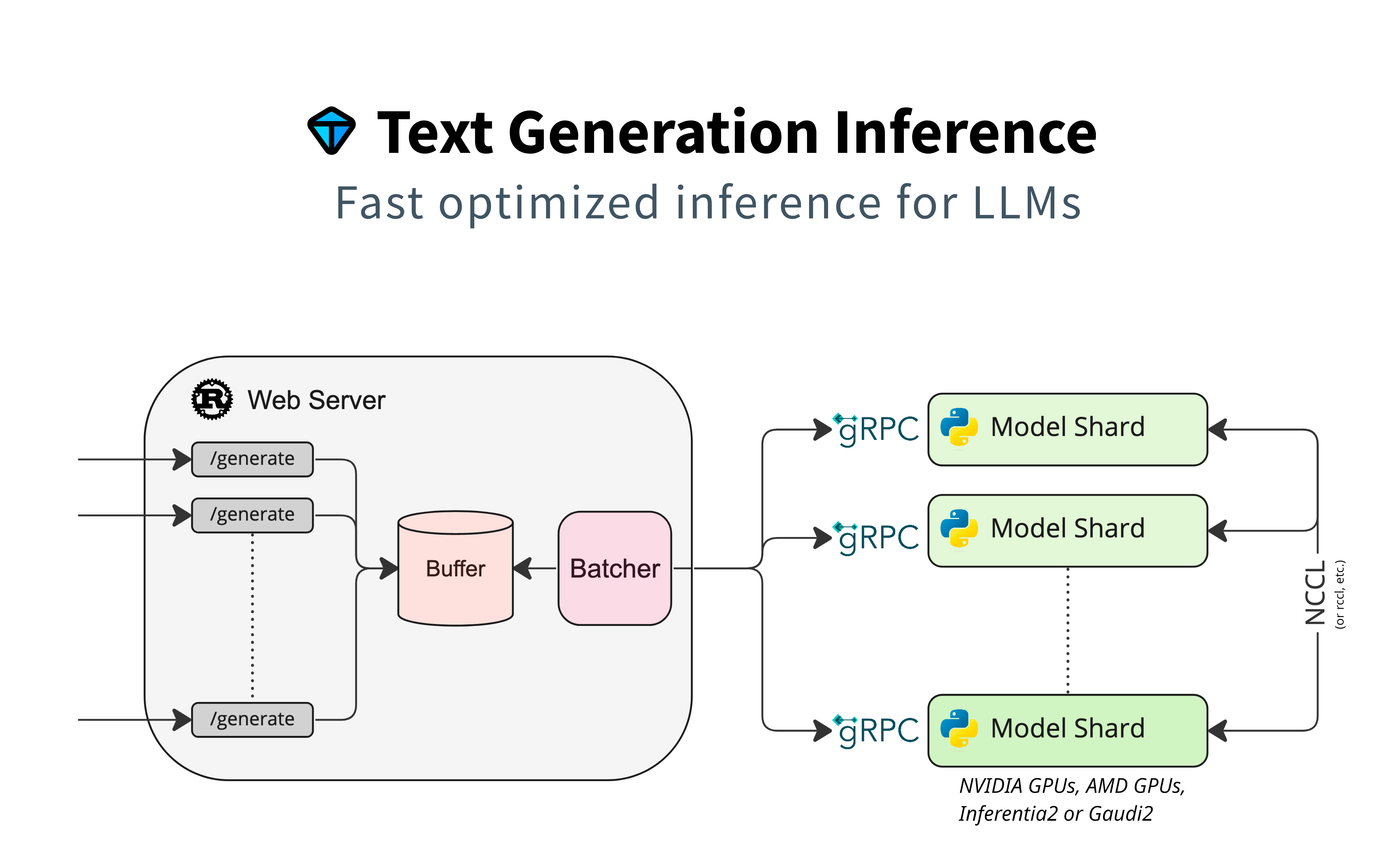mirror of
https://github.com/huggingface/text-generation-inference.git
synced 2025-04-19 22:02:06 +00:00
# What does this PR do? Fix some small typos in the docs; add minor clarifications; add guidance to features on landing page ## Before submitting - [x] This PR fixes a typo or improves the docs (you can dismiss the other checks if that's the case). - [ ] Did you read the [contributor guideline](https://github.com/huggingface/transformers/blob/main/CONTRIBUTING.md#start-contributing-pull-requests), Pull Request section? - [ ] Was this discussed/approved via a Github issue or the [forum](https://discuss.huggingface.co/)? Please add a link to it if that's the case. - [ ] Did you make sure to update the documentation with your changes? Here are the [documentation guidelines](https://github.com/huggingface/transformers/tree/main/docs), and [here are tips on formatting docstrings](https://github.com/huggingface/transformers/tree/main/docs#writing-source-documentation). - [ ] Did you write any new necessary tests? ## Who can review? @OlivierDehaene
2.0 KiB
2.0 KiB
Text Generation Inference
Text Generation Inference (TGI) is a toolkit for deploying and serving Large Language Models (LLMs). TGI enables high-performance text generation for the most popular open-source LLMs, including Llama, Falcon, StarCoder, BLOOM, GPT-NeoX, and T5.
Text Generation Inference implements many optimizations and features, such as:
- Simple launcher to serve most popular LLMs
- Production ready (distributed tracing with Open Telemetry, Prometheus metrics)
- Tensor Parallelism for faster inference on multiple GPUs
- Token streaming using Server-Sent Events (SSE)
- Continuous batching of incoming requests for increased total throughput
- Optimized transformers code for inference using Flash Attention and Paged Attention on the most popular architectures
- Quantization with bitsandbytes and GPT-Q
- Safetensors weight loading
- Watermarking with A Watermark for Large Language Models
- Logits warper (temperature scaling, top-p, top-k, repetition penalty)
- Stop sequences
- Log probabilities
- Fine-tuning Support: Utilize fine-tuned models for specific tasks to achieve higher accuracy and performance.
- Guidance: Enable function calling and tool-use by forcing the model to generate structured outputs based on your own predefined output schemas.
Text Generation Inference is used in production by multiple projects, such as:
- Hugging Chat, an open-source interface for open-access models, such as Open Assistant and Llama
- OpenAssistant, an open-source community effort to train LLMs in the open
- nat.dev, a playground to explore and compare LLMs.
